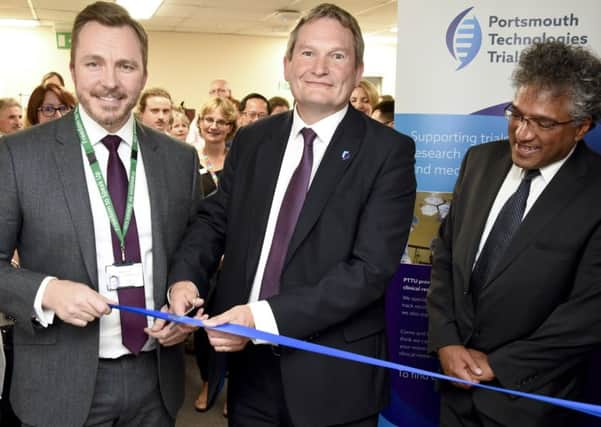New Portsmouth research centre will call on city to drive NHS innovation


The University of Portsmouth and Queen Alexandra Hospital have teamed up for a project that aims to transform the treatment and care of patients in the city.
The two organisations have launched the Portsmouth Technologies Trials Unit which will see them work together to research and test technology to improve healthcare.
Advertisement
Hide AdAdvertisement
Hide AdThe scheme, which is one of the first of its kind in the country, will call on people across the patch, from participants to companies who might have ideas, to contribute and produce innovative treatments and equipment.
Professor Anoop Chauhan, director of research, said: ‘Our aim is to transform clinical research in Portsmouth for patients and the city’s residents. The difference it will make to patients is important as it will allow them to access new technology to develop their care.’
The PTTU will give small and medium enterprises (SMEs) the chance to come to them with ideas for innovative ways to diagnose and treat patients. Then, staff from QA Hospital and the university will test the product and see how viable it could be in healthcare.
Some of the technology could include devices that accurately predict blood pressure, pulse, temperature, heart rate and other vital signs through a non-touch digital format as well as trials in robotic surgery, devices to diagnose and predict attacks of asthma and COPD and new endoscopic techniques to detect cancer more easily.
Prof Chauhan said he is keen to work with businesses.
Advertisement
Hide AdAdvertisement
Hide AdHe added: ‘Sometimes at the moment, the experts or researchers you need to make these developments aren’t readily available but now they will be in the same place.
‘We will try to transform care and I am confident we will. This is really just the start, we want to branch out and be the people who others around the country learn from. It is an exciting time.’
The PTTU comes as QA had its most successful research year in 2017/18. Nearly 6,000 people took part in clinical research making for a sixth successive increase.
The hospital’s chief executive Mark Cubbon said: ‘This is about making patients’ lives better now. It is about what’s happening around the corner and what the next innovation is.’
Advertisement
Hide AdAdvertisement
Hide AdUniversity vice-chancellor Graham Galbraith said: ‘There is no reason why we cannot be the people that are finding, developing and pushing new innovations that will make a difference. It is great we will be giving SMEs a chance because there are companies with amazing ideas.’